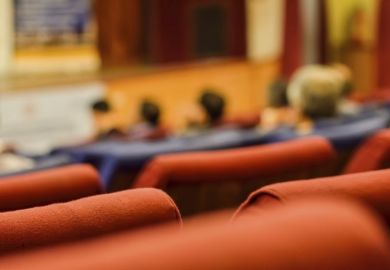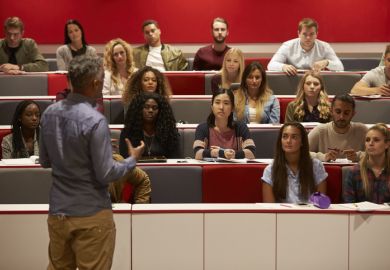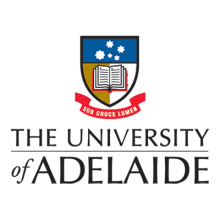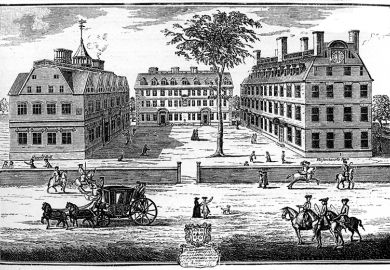The leaders of Australia’s newest university have “fundamentally breached” their commitment to “co-creation” by unilaterally jettisoning in-person lectures, according to the academic union.
Administrators said face-to-face lectures would “gradually be replaced” at Adelaide University following its 2026 establishment from a merger of the universities of Adelaide and South Australia.
In a response to questions from the National Tertiary Education Union (NTEU), executives from the constituent universities said “rich digital learning activities” would deliver “an equivalent learning volume to traditional lectures”.
A “common baseline for digital learning across courses” will provide a “consistent experience” for “a more diverse pool of learners” without “compromising the on-campus experience”, they said.
A questions-and-answers page on the forthcoming university’s website promises teaching through tutorials, workshops, clinical activities, forums, studios and practical sessions, but does not mention lectures.
The approach reflects a widespread exodus from long-form lectures as educators opt for modes of delivery considered less passive and more flexible for students with jobs or children. A survey of Australian universities during the pandemic found that only a minority were committed to maintaining face-to-face lectures.
But NTEU’s South Australian secretary, Andrew Miller, said administrators were obsessed with “miniaturising the curriculum”. Dr Miller said long-form lectures forced students to “sit” with ideas and “follow complex arguments through to their completion, rather than everything being carved up into…bite-sized YouTube videos”.
He said contemporary lectures were highly interactive, allowing academics to detect and correct students’ misconceptions. “How do you build sustained concentration, listening skills and deep engagement through time when you’re removing that kind of education from the curriculum?” he asked.
Adelaide University’s leaders have promised “meaningful co-creation” whereby key stakeholders “help design core elements” of the future institution. Dr Miller said these were hollow words, with staff and students given “no mechanism” to reject proposals they considered “bad”.
He said NTEU polling of staff from both constituent universities had found overwhelming opposition to Adelaide University’s plan to adopt a trimester-based academic calendar. “Co-creation…should mean genuine empowerment of all participants and the power of staff and students to say ‘no’.”
The universities have promised to consult staff to ensure “an effective implementation” of the trimester model, but ignored NTEU questions asking if staff would have a say on whether the proposal proceeded. “Co-creation is not a process where ideas from our people are approved or rejected,” they told the union. “It…seeks to optimise the collective skills, ideas and knowledge of our staff to inform…the successful establishment…of Adelaide University.”
University of South Australia provost Joanne Cys said staff had been “comprehensively engaged in a collaborative process”. She said more than 2,400 people had played a role in “advancing the new institution’s teaching and learning transformation”, including more than 900 staff with curriculum expertise.
Professor Cys, who is overseeing curriculum development for the new university, said on-campus, face-to-face learning would predominate. “Most courses will include some digital learning activities that students can do at a time that suits them, such as videos, podcasts, simulations, reading and discussion forums. We are modernising and enriching our offerings to ensure that learning is tailored to the needs of different programmes and students,” she said.
Dr Miller said the purging of lectures undermined academic freedom, which included discretion over teaching modes. He said replacing lecturers with “content creators” risked diluting academic expertise, pastoral care and the updating of teaching material.
Register to continue
Why register?
- Registration is free and only takes a moment
- Once registered, you can read 3 articles a month
- Sign up for our newsletter
Subscribe
Or subscribe for unlimited access to:
- Unlimited access to news, views, insights & reviews
- Digital editions
- Digital access to THE’s university and college rankings analysis
Already registered or a current subscriber?


















